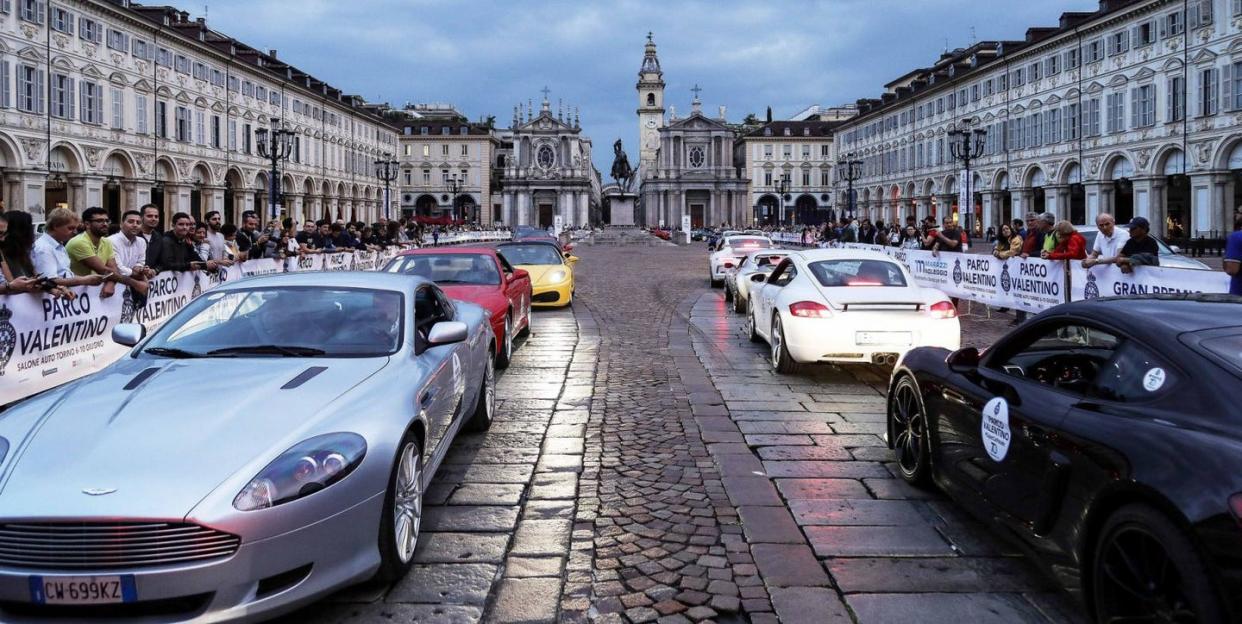Italy's Motown Opens Its Roads to Autonomous-Vehicle Testing

Et tu, Torino? If there's a country more passionate about vehicles and the act of driving than Italy, we'd be hard pressed to name it. But now, even Italy is joining the global rush to hand it all over to the robots and let the cars drive themselves.
As self-driving cars make the transition from dreamy-eyed research conducted in laboratories and simulators, carmakers and tech firms need actual streets on which to test in real-world conditions. While some government regulators have proven more cooperative than others (Phoenix, Arizona, for instance), legal permission to run driverless cars on city streets isn't easy to come by, particularly for smaller startups. But now one city isn't just allowing self-driving cars to run on its roads, it's courting them.
That city is Turin, the fourth largest in Italy and-as longtime home of Fiat headquarters (and several of its plants)-about the closest equivalent to Detroit you'll find in southern Europe. That is, if you can imagine southeastern Michigan with a Mediterranean climate and ancient architecture.
Through the recently launched Torino City Lab initiative, the municipality aims to attract tech startups and provide them with the tools, data, and expedited bureaucracy they need to develop new technologies. And it's placing particular emphasis on the automotive and transportation sectors.

With its Smart Road project, the city is developing a 22-mile circuit of urban streets augmented to create a real-world testing ground for autonomous vehicles and driver-assistance systems. Along the route, the city and its partners are installing 5G mobile internet infrastructure, an array of 72 smart traffic lights, and dedicated cloud-computing servers close to the network.
"We are doing this to attract in our city innovation, to give new opportunities to our citizens, and to create an ecosystem that is open and ready for innovation and new startups," Paola Pisano, deputy mayor for innovation and Smart City in Turin, told tech investors at the OurCrowd Summit, which recently took place down the Mediterranean coast in Jerusalem. "We want to be the first city in innovation."
What Turin stands to gain extends beyond jobs for its residents and tax revenues from the influx of companies it's courting. The initiative is designed to give planners insight into the relationship among vehicles, infrastructure, and the people who use them. And through those insights, it aims to develop new transportation models to cater to the needs of residents and visitors while reducing traffic congestion, road accidents, and environmental pollution.

French autonomous-vehicle firm Navya has already begun testing its self-driving shuttles in Turin, the first such pilot project undertaken anywhere in Italy. Engineering consultancy FEV has also started testing its self-driving prototypes there. And Intel's Mobileye division (based just across town from where the summit was held) is creating high-definition digital maps of the city. But those are just a few of the many partners that the Palazzo Civico (Turin's city hall) has lined up to support the project.
Also taking part are local universities, telecom companies, and automakers. These include not only the obvious ties to Fiat Chrysler, but also Italdesign (the Volkswagen Group's Turin-based design house), the consulting arm of Mercedes-Benz, and General Motors (which divested from most European operations but kept its powertrain-development facility in Turin).
"We have a strong ecosystem around mobility and around manufacturing," Pisano said. "So for this reason, for us, it is natural for us to do this evolution."
New Funding Is Driving Self-Driving Startups
In Israel, Pisano penned a new partnership on her city's behalf with OurCrowd, the investment firm that organized the summit, to help the tech startups it funds take advantage of the initiative and test their technologies in Turin. Of the $1 billion it has raised and dispersed to 170 companies in its portfolio since 2013, OurCrowd currently funds 10 startups working on driver-assistance and autonomous-vehicle technologies.
"Partnering with Torino City Lab gives our companies not only access to an urban playground for testing and strengthening their technology but a potential foothold into the European market as well-a win for everyone," said OurCrowd founder and CEO John Medved upon the announcement. "Public/private partnerships like this one are the future of scalable innovation," Pisano added, noting that her administration is "glad to continue to be the forefront of this trend."
Unleashing fleets of autonomous prototypes on public streets might be enough to scare off some government officials. But the official responsible for Turin's innovation initiatives is adamant that the potential benefits outweigh the safety risks and that the infrastructure her team and partners are putting in place will mitigate the chances of possible mishaps.
"The car has all the sensors around it to understand the environment, but if you want to create a more secure structure, you have to give more redundancy to the data," Pisano told Car and Driver. "So for this reason, we map all the city with precision mapping in order to [provide] redundant data.
"If you have 5G, you have low latency," she said. "But if you have also the cloud close to the car, you can have faster [processing] of the algorithm. So we have really strong technology for safety, we [gather] redundant the data, we take out [drivers'] distracted behavior . . . and we cross our fingers that the thing we are thinking is correct for the security of our citizens."
('You Might Also Like',)

